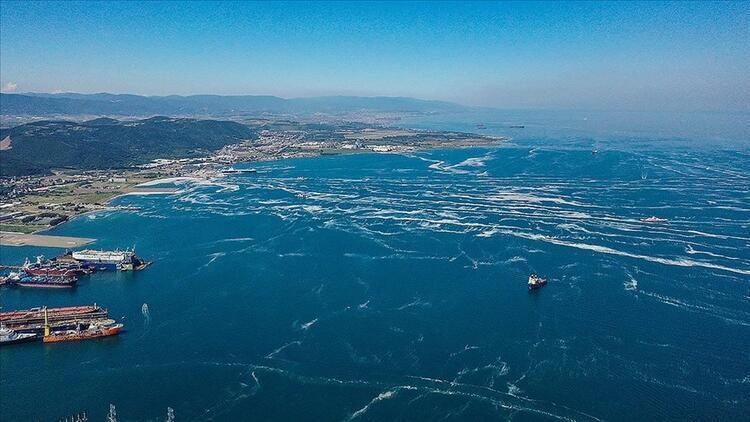Turkish parliament to probe mucilage threatening Marmara Sea
ISTANBUL

Turkey’s parliament has agreed to set up an all-party committee to investigate a slimy, floating mass of yellowish-white sea mucilage that is threatening marine life in the Marmara Sea.
The so-called sea snot, a thick and slimy substance made up of compounds released by marine organisms, has surfaced in waters south of Istanbul, alarming marine biologists and environmentalists.
The mucilage had also infiltrated portions of the adjoining Aegean and Black seas.
In a rare show of unity, five parties represented in parliament agreed on June 10 to form a joint committee that would investigate the cause of the outbreak and propose solutions to combat it.
The 19-member committee would complete the probe within three months.
Speaking to Hürriyet daily, ruling Justice and Development Party (AKP) lawmaker Mustafa Demir said that work continues in all aspects to get to the root of the problem and solve the issues.
Özgür Özel, a lawmaker of the main opposition Republican People’s Party (CHP), said that the government that has been ruling the country for 20 years does not have the luxury of saying “this problem was before us.”
Meanwhile, a committee released a final declaration evaluating the academic studies on solutions to the problem.
President Recep Tayyip Erdoğan chaired the meeting late on June 10 in the capital discussing solutions to the mucilage problem in the Marmara Sea.
Increasing temperatures, oxygen depletion, the acidification of oceans, terrestrial inputs (sewage water, food elements), overfishing, pollution, invading species and maritime activities are among the main causes of the excessive mucilage, said the declaration.
It said the phenomenon occurred because single-celled organisms reacted to changing environmental conditions by discharging their intracellular organic liquids more and/or faster than normal.
Among the changes in the environmental conditions were increasing population density in the region, exposure to domestic or industrial wastes, loss of habitat and increasing sea temperatures due to climate change, it added.
Concerning the results of the phenomenon, the declaration explained that mucilage, which is rich in various pollutants, goes down to the sea bottom and disrupts the structure of the benthic flora and fauna, limiting the lives of the creatures living there.
While increasing the rate of accumulation of heavy metals within the mucilage mass formed, it is also expected to decrease the level of oxygen in the Marmara Sea.
As for the solution, the academics highlighted the importance of prioritizing the health of the sea ecosystem in the planning of activities in the Marmara Sea.
















